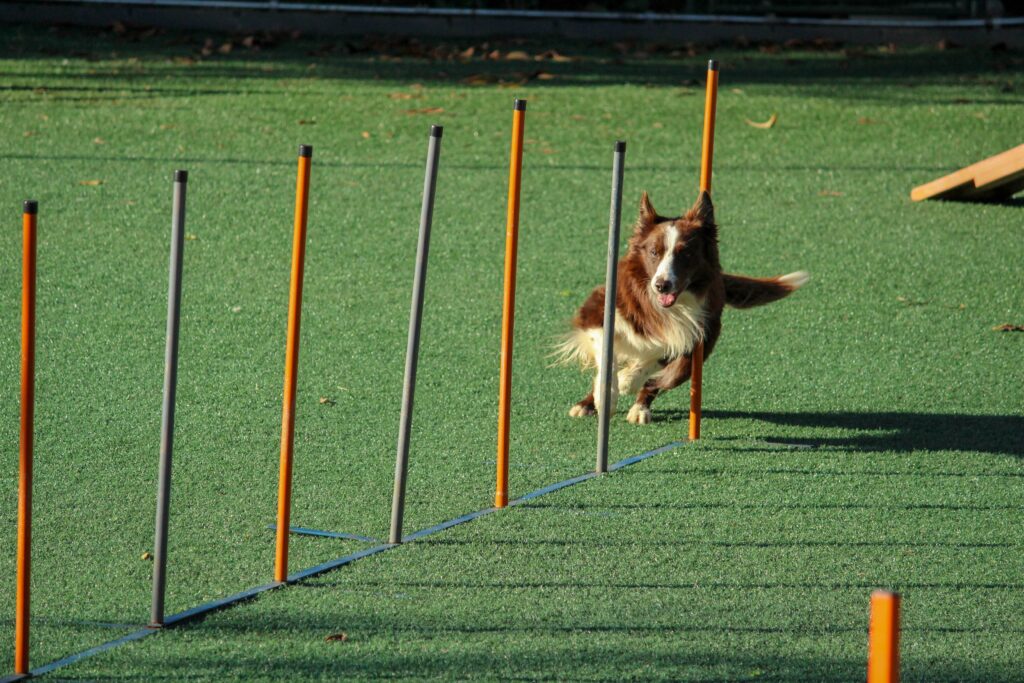Let’s learn about Aging in Dogs & Common Health Problems!!!
As much as we would love for our furry companions to stay young and energetic forever, aging is an inevitable process that affects all living beings – including dogs. Just like humans, dogs experience a range of physical changes as they grow older.
From gray hairs to slower movements, it can be tough seeing our once-vibrant pups slowing down. In this blog post, we’ll dive into the nitty-gritty of understanding aging in dogs and some common health problems that come with it. So grab a cup of coffee (or tea) and let’s get started!
Signs of Aging in Dogs
As our furry friend’s age, it’s important to be aware of the signs of aging in dogs so we can better understand their health problems. Just like with humans, our canine companions experience a decrease in energy levels and joint pain as they age. Additionally, they may also suffer from cognitive decline, which can manifest as changes in sleeping patterns, increased anxiety, or difficulty learning new tricks.
If you notice any of these changes in your dog, it’s important to bring them to the vet for a check-up. While some of these changes are simply a natural part of aging, others could indicate underlying health problems that need to be treated. With early detection and treatment, many of these health problems can be managed so your dog can enjoy their golden years to the fullest!
7 Common Health Problems faced by Older Dogs
As our furry friend’s age, they become more susceptible to health problems. Here are seven common health problems faced by older dogs:
1. Arthritis: Arthritis is a common condition that causes pain and stiffness in the joints. It can make it difficult for your dog to move around and may cause them to limp. Older dogs are more likely to develop arthritis, especially if they are overweight.
2. Cancer: Cancer is one of the leading causes of death in older dogs. It can affect any part of the body, but the most common types include lymphoma and bone cancer. Early detection is key to successful treatment, so be sure to keep an eye out for signs of cancer in your senior dog.
3. Kidney Disease: Kidney disease is a common health problem in older dogs. The kidneys filter waste from the blood and remove it from the body through urine. Kidney disease can cause your dog to produce less urine, which can lead to dehydration. Signs of kidney disease include increased thirst, weight loss, and lethargy.
4. Dental Disease: Dental disease is another common issue in older dogs. Poor dental hygiene can lead to gum disease, tooth decay, and even mouth tumors. Be sure to brush your dog’s teeth regularly and take them for annual dental checkups.
5. Diabetes: Diabetes is a chronic condition that occurs when the pancreas doesn’t produce enough insulin or when the body can’t effectively.
Read More: Training a New Pet? Here are 5 steps you must know!
Here are 5 Ways to take care of Senior Dogs
1. Keep them at a healthy weight: Just like humans, carrying around extra weight can put a strain on a senior dog’s joints and heart. Keep your dog at a healthy weight by monitoring their food intake and making sure they get plenty of exercises.
2. Get them regular check-ups: Take your senior dog for regular check-ups with the vet so any health problems can be caught early.
3. Keep up with their dental care: Dental disease is common in senior dogs, so it’s important to keep up with their dental care. This means brushing their teeth regularly and getting professional cleanings as needed.
4. Be aware of changes in behavior: Changes in behavior can be an early sign of health problems in senior dogs, so it’s important to be aware of any changes. If you notice your dog is sleeping more, not eating as much, or seems less interested in activities they used to enjoy, make an appointment with the vet.
5. Give them plenty of love and attention: As your dog enters their golden years, it will appreciate plenty of love and attention from you!

Final Notes
As your dog ages, it’s important to keep a close eye on its health and be aware of any changes. While some age-related health problems are unavoidable, there are many things you can do to help your dog live a long and healthy life.
Here are some final notes on understanding aging in dogs and common health problems:
*As your dog ages, it may become more susceptible to health problems. However, there are many things you can do to help them stay healthy and live a long life.
*Be sure to take your dog to the vet regularly for checkups and vaccinations. This will help catch any problems early on.
*Keep an eye on your dog’s weight, diet, and exercise routine. A healthy lifestyle will help them stay fit and avoid age-related health problems.
*Make sure your dog has plenty of mental stimulation through toys, games, and interaction with you and other family members. A bored dog is more likely to develop behavior problems.
By following these tips, you can help your dog age gracefully and enjoy a long and healthy life!

